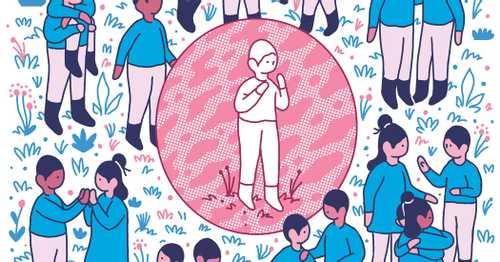An Adult's Guide to Social Skills, for Those Who Were Never Taught
Curated from: nytimes.com
Ideas, facts & insights covering these topics:
6 ideas
·4.74K reads
18
Explore the World's Best Ideas
Join today and uncover 100+ curated journeys from 50+ topics. Unlock access to our mobile app with extensive features.
The social foundation: emotional intelligence
Emotional intelligence (or E.I.) is your ability to be aware of your own emotions, to recognize emotions in others and use that information to guide your behavior.
When you develop your own E.I., you can understand and improve your social interactions.
337
979 reads
The general categories of E.I.
- Self-awareness: Do you get anxious in loud environments? Self-awareness is knowing these things about yourself.
- Self-regulation deals with your ability to manage your own emotions.
- Motivation: You know how to motivate yourself and create or continue projects because you choose to.
- Empathy: It means recognizing the emotions of others.
- Socialization: It is your ability to navigate social situations, including conveying your ideas to co-workers or dealing with a conflict in a relationship.
335
720 reads
Constructively confront someone
Our own fears keep us from confronting others. We fear that we'll lose something, hurt someone we care about, or that it will accomplish nothing.
- Recognize that fear in yourself and identify the real issues that led to the conflict.
- When you are able to discuss the issue, instead of firing accusations, describe your behavior using "I" statements: "I feel hurt that .............................."
293
720 reads
Speak up in a group
Group conversations are loud and can seem chaotic. Don't get frustrated. Go with the flow of the conversation and look for opportunities to jump in.
When you say something, speak loudly and with confidence. Keep your stories short or frame a complaint as a story.
267
661 reads
Make (and keep) new friends
The most important aspect of developing a new friendship is to show up.
- Decide that you're going to make friends and then put yourself in situations where you can find friends. Take a class or join a club.
- Make a point to follow up if you found someone you want as a friend.
304
884 reads
Strike up a conversation
Most of us are willing to talk to a stranger. Few are eager to make the first move.
If the person seems open to a conversation and is not busy, start by saying hello or opening with a compliment. After that, you can keep the conversation flowing by offering an observation or insight and follow it up with a question.
281
783 reads
IDEAS CURATED BY
Kyron Ito's ideas are part of this journey:
Learn more about communication with this collection
How to make rational decisions
The role of biases in decision-making
The impact of social norms on decision-making
Related collections
Similar ideas
1 idea
7 ideas
11 ideas
Read & Learn
20x Faster
without
deepstash
with
deepstash
with
deepstash
Personalized microlearning
—
100+ Learning Journeys
—
Access to 200,000+ ideas
—
Access to the mobile app
—
Unlimited idea saving
—
—
Unlimited history
—
—
Unlimited listening to ideas
—
—
Downloading & offline access
—
—
Supercharge your mind with one idea per day
Enter your email and spend 1 minute every day to learn something new.
I agree to receive email updates
